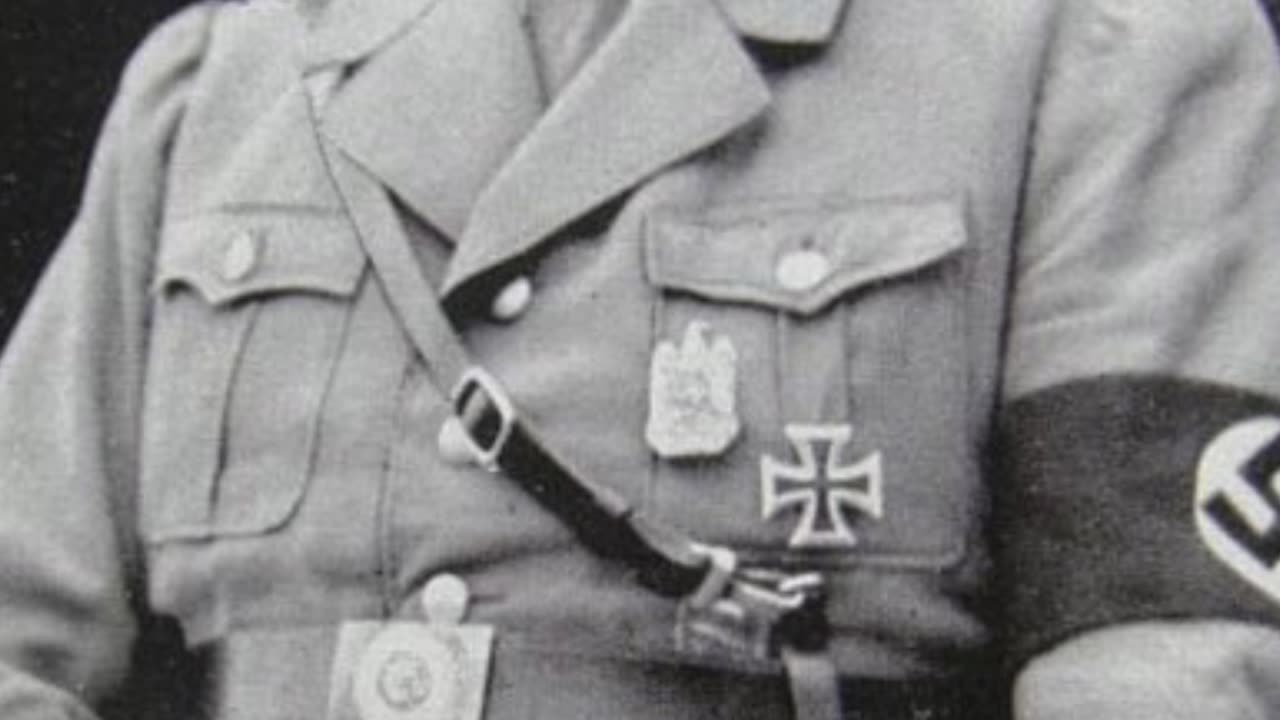Premium Only Content

Hitler's Speech in Munich – February 26, 1924
Background Leading Up to Hitler's Speech in Munich on February 26, 1924
Beer Hall Putsch: On November 8-9, 1923, Adolf Hitler and the Nazi Party attempted a coup known as the Beer Hall Putsch in Munich, aiming to overthrow the Weimar Republic. The putsch failed, resulting in Hitler's arrest and the death of several Nazi supporters.
Trial and Imprisonment: Hitler was tried for treason and, despite using the trial as a platform to spread his ideas, was sentenced to five years in Landsberg Prison. However, his imprisonment was relatively lenient, and he served only nine months.
Mein Kampf: During his time in prison, Hitler began writing "Mein Kampf," outlining his ideology and future plans for Germany. His trial and imprisonment increased his public profile and sympathy among nationalist circles.
Political Climate: The Weimar Republic continued to face economic difficulties, political instability, and social unrest. The hyperinflation crisis had abated by 1924, but the nation was still struggling to recover.
Hitler's Speech in Munich – February 26, 1924
On February 26, 1924, Adolf Hitler delivered a significant speech in Munich. This speech came shortly after his release from prison and was intended to reaffirm his leadership and vision for Germany.
Key Points of Hitler's Speech:
Reflection on the Putsch: Hitler began by reflecting on the Beer Hall Putsch, framing it as a noble but premature effort to save Germany. He portrayed the failed coup as a patriotic act of resistance against a corrupt and failing government.
Critique of the Weimar Republic: Continuing his long-standing criticism, Hitler condemned the Weimar Republic for its perceived weaknesses and failures. He argued that the government was unable to address Germany's economic and social problems and that it was responsible for the nation’s decline.
Reaffirmation of Ideals: Hitler reaffirmed the core ideals of the Nazi Party, emphasizing nationalism, anti-Semitism, and anti-Marxism. He reiterated his belief in the need for a strong, unified Germany free from the influence of Jews and Marxists.
Vision for Germany: Hitler outlined his vision for Germany's future, which included the establishment of a totalitarian state under Nazi control. He emphasized the importance of national unity, economic recovery, and military strength.
Call for Support: He called on his supporters to remain steadfast and to continue their efforts to bring about the Nazi vision for Germany. Hitler sought to re-energize the party’s base and to reassure them that their struggle would eventually lead to success.
Political Strategy: Hitler discussed the need for a strategic approach to gaining power. He emphasized the importance of legal and political maneuvering to achieve their goals, indicating a shift from direct action to a more calculated plan for gaining control of the government.
Analysis:
Hitler’s speech on February 26, 1924, was a critical moment in the reorganization and revitalization of the Nazi Party after the failure of the Beer Hall Putsch. It served to reaffirm his leadership and to re-establish the party's ideological foundation and strategic direction.
Recasting the Putsch: By framing the failed coup as a noble act, Hitler sought to maintain the moral high ground and to inspire his followers. This portrayal helped to keep the party's spirit alive and to cast their efforts in a positive light.
Condemnation of the Republic: The continued critique of the Weimar Republic resonated with many Germans who were frustrated with the government’s inability to address economic and social issues. This critique helped to maintain and build support for the Nazi Party.
Reaffirmation of Ideals: Reaffirming the Nazi ideology was crucial for maintaining the party’s identity and coherence. By reiterating core beliefs, Hitler ensured that the party’s message remained clear and consistent.
Strategic Shift: The emphasis on a strategic approach to gaining power indicated a pragmatic shift in Nazi tactics. This shift would later prove crucial in the party’s eventual rise to power through legal means and political alliances.
Call for Persistence: The call for continued support and persistence was intended to keep the party’s base motivated. By encouraging steadfastness, Hitler aimed to prevent disillusionment and to prepare his followers for the long struggle ahead.
Overall, Hitler’s speech in Munich on February 26, 1924, was a pivotal moment in the Nazi Party’s history. It served to re-establish Hitler’s leadership, reaffirm the party’s ideological foundations, and set a strategic direction for future efforts to gain power. This speech was a crucial step in the recovery and eventual resurgence of the Nazi movement in the years leading up to their eventual takeover of the German government.
-
 1:30:16
1:30:16
2 MIKES LIVE
8 hours ago2 MIKES LIVE #203 Lone Survivor with Donna Axelson and Adam Flynn!
50.2K -
 1:18:49
1:18:49
Kim Iversen
9 hours agoEXPOSED: Inside Tim Pool’s Secret Meeting with Netanyahu | Trump’s Tariff Gamble: Boost for America or Death Blow?
166K331 -
 5:28:29
5:28:29
Biscotti-B23
9 hours ago $1.92 earned🔴 LIVE GETSUGA GAUNTLET 🔥 TRAINING FOR RANKED ⚔ BLEACH REBIRTH OF SOULS
47.6K1 -
 1:19:00
1:19:00
Sarah Westall
6 hours agoMassive Spiral Structures Found Under Giza Pyramids, Advanced Ancient Societies w/ Jay Anderson
99.2K21 -
 54:32
54:32
LFA TV
13 hours agoStrongman Stare Down | TRUMPET DAILY 4.9.25 7PM
81K11 -
 1:35:31
1:35:31
Redacted News
9 hours agoBioweapons over America? U.S. Geo-engineering caught raining mysterious objects over U.S. | Redacted
208K294 -
 1:19:20
1:19:20
vivafrei
11 hours agoCanadian Government & Courts Denying Military Jab Injury Compensation? Trump Pronouns "No Thanks"?
134K40 -
 54:20
54:20
Candace Show Podcast
9 hours agoHarvey Weinstein Calls Out Justin Baldoni | #MAHA Gaslighting Begins | Candace Ep 174
133K123 -
 22:26
22:26
Exploring With Nug
12 hours ago $1.53 earnedI Found a Heavy Bag Underwater Scuba Diving! What's Inside?
34.6K2 -
 11:39:44
11:39:44
Dr Disrespect
13 hours ago🔴LIVE - DR DISRESPECT - WARZONE VERDANSK - THE NUKE
193K23